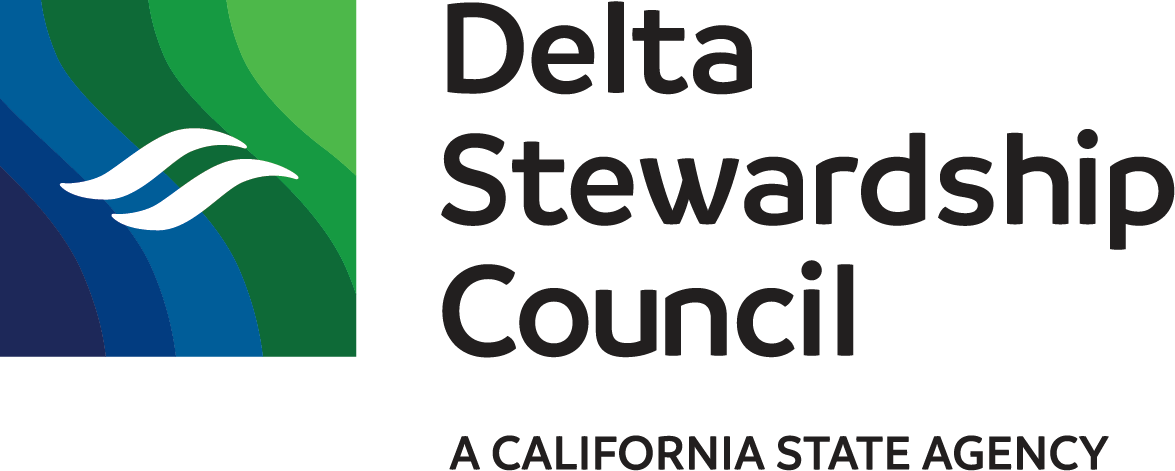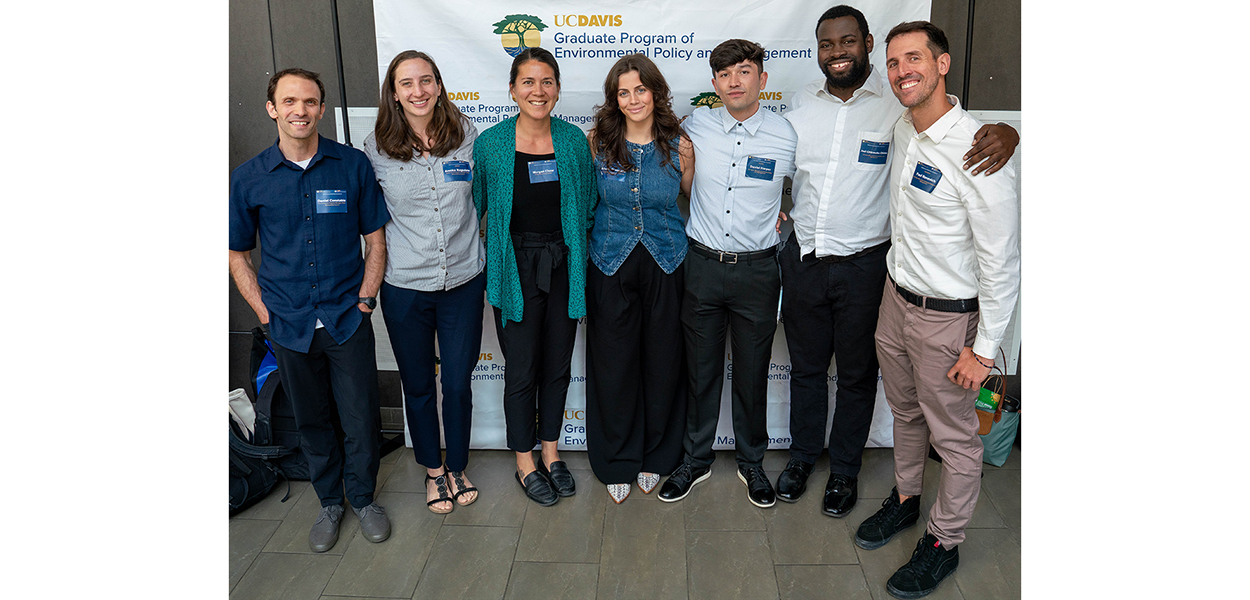
Photo credit: Jenevieve Bohmann/UC Davis
Farming in the Delta - New Resource Available for Farmers Interested in Sustainable Practices
July 29, 2025
By Annika Ragsdale
About a year ago, before joining the Delta Stewardship Council, I finished my master’s degree in Environmental Policy and Management (EPM) at the University of California, Davis. A unique component of the EPM program is the Environmental Policy Clinic, which pairs student teams with clients to conduct policy analysis or environmental management projects. For my project, I worked with four classmates and the Ocean Science Trust to research the benefits of blue carbon ecosystems to California’s disadvantaged communities. Fast forward one year, and I am in the Environmental Policy Clinic once again, this time as a client. I was excited to have the opportunity to mentor a team of EPM students over the past two quarters as they completed their Policy Clinic project with me and other Council staff. I am pleased to share their work on climate-smart agriculture strategies and alternative revenue streams available to farmers in the Sacramento-San Joaquin Delta, which came together into a user-friendly catalog of practices for farmers focused on cost savings and improved productivity and resiliency.
Purpose and Need: Supporting Farmers in Implementing Sustainable and Resilient Practices
Agriculture adaptation strategies from the Council’s Adaptation Plan:
AG-1: Expand adoption and support implementation of climate-smart farming practices across Delta agricultural lands
AG-2: Build a sustainable, equitable regional food system
AG-3: Support diversification of income/revenue opportunities on operating agricultural lands
AG-4: Cooperatively identify strategic agricultural land retirement opportunities, where other land uses would be of high monetary or non-monetary value
In past conversations with Delta growers, the Council learned that many farmers are concerned about the long-term sustainability of farming in their region due to declining productivity, increasing salinity, rising temperatures, invasive species, and other climate-related impacts.1 Some are changing their farming practices to adapt to climate change, such as by conserving water or planting crops that can handle drier or wetter conditions.2 These “climate-smart” farming practices provide one pathway to preserve valuable farmland and ensure farms can remain profitable. Others are thinking about ways they can retire some of their land while remaining profitable. The Council’s Delta Adapts Adaptation Plan, adopted by the Council in June 2025, identifies strategies to adapt farming in the Delta to climate change and support growers financially so they can continue to farm. This EPM-led research project helps farmers navigate barriers to bring in new funding sources and adapt farming operations to be more productive, more resilient to climate change, reduce greenhouse gas emissions, and provide other benefits to Delta communities and ecosystems.

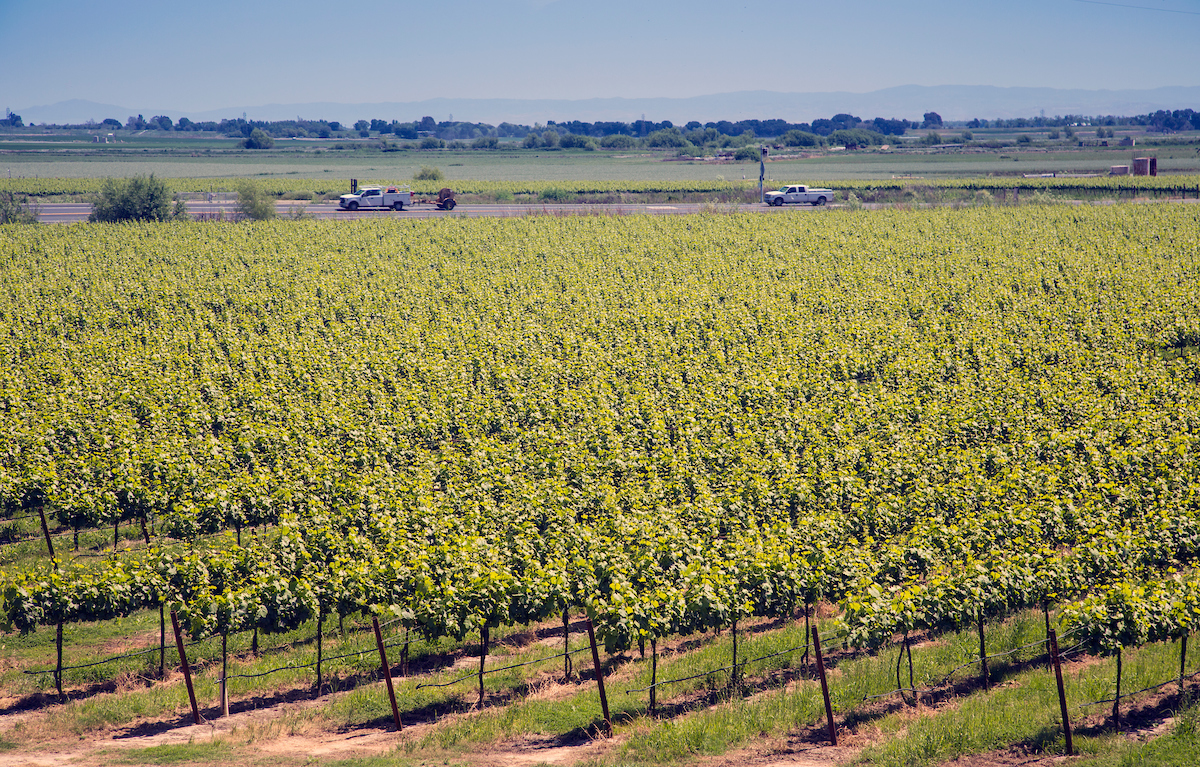
Learning from Locals
The EPM student team held 13 informational interviews with individuals, including Delta farmers and agricultural practitioners from nonprofits, Resource Conservation Districts, other state agencies, and academic institutions, to understand current trends in Delta farming.
“One of the most eye-opening experiences of this project was coming from an academic background and being confronted with the on-the-ground experience of farmers, which at times contradicted my own understanding.” - Joel Chima, UC Davis EPM Graduate
They were also invited by the nonprofit Conservation Farms and Ranches for a site visit to Staten Island in the heart of the Delta to learn about the wildlife-friendly farming they are doing there in partnership with The Nature Conservancy. Interview participants provided valuable guidance about what climate-smart agriculture and revenue strategies are being used in the Delta already, what farmers are interested in doing in the future, as well as known barriers and available resources. These interviews were critical to providing lived experiences and on-the-ground knowledge from practitioners, which the students then used to guide their research. Common themes that came up were related to financial and funding uncertainty and the challenges of withstanding environmental degradation and an evolving climate.
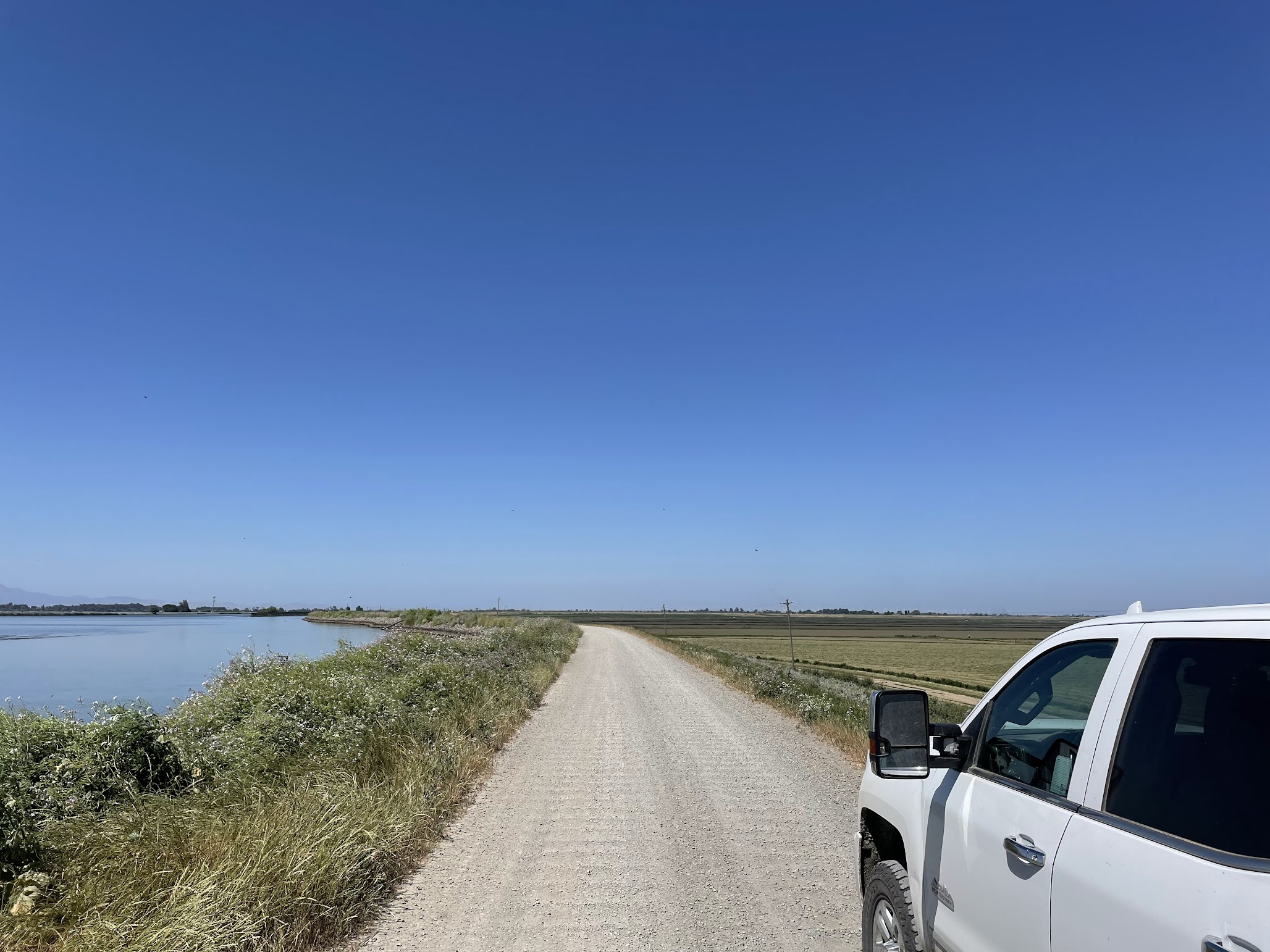
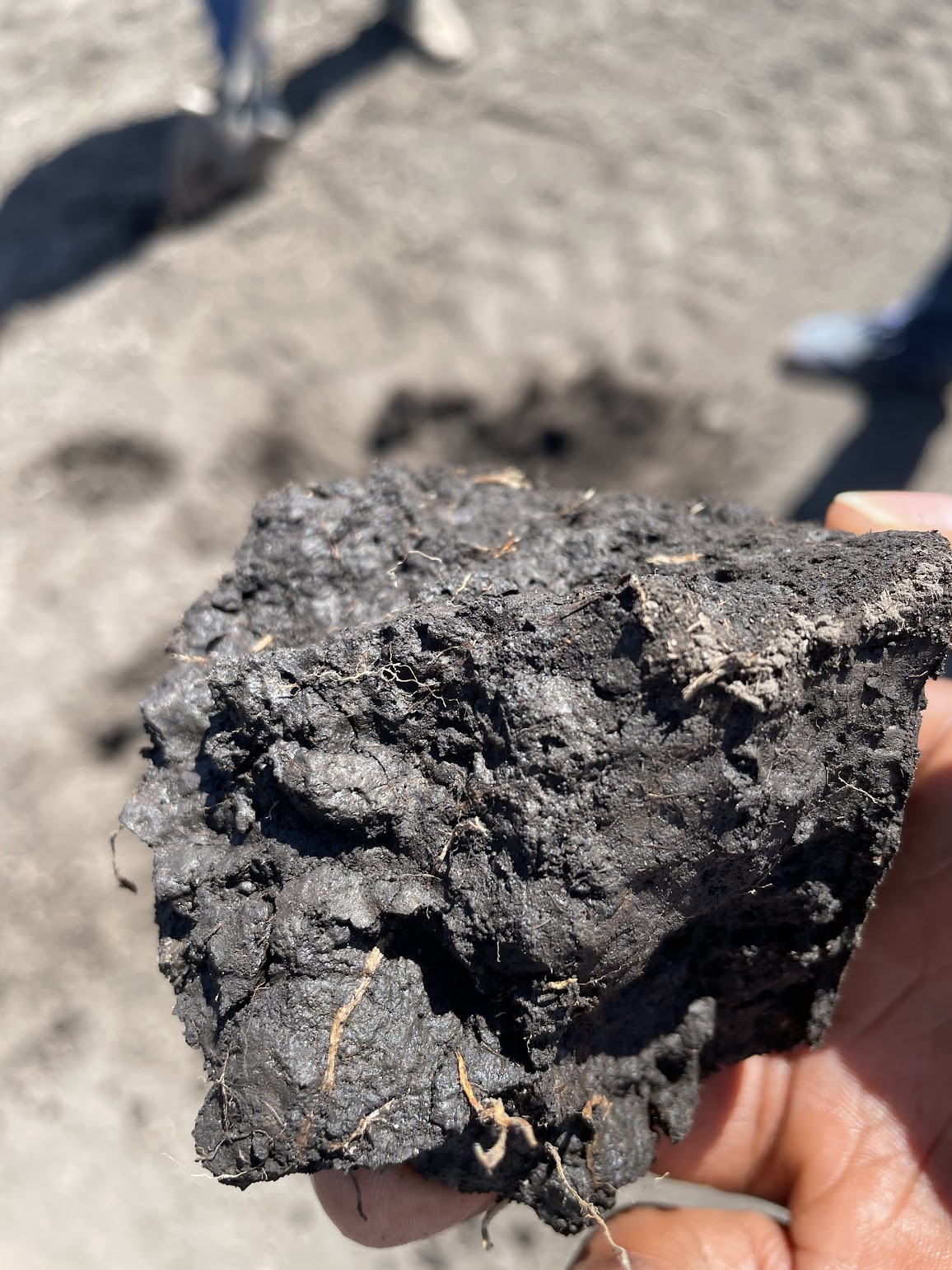
Photos from the EPM team site visit to Staten Island. Photo credit: Joel Chima.
Curating a Climate-Smart Catalog
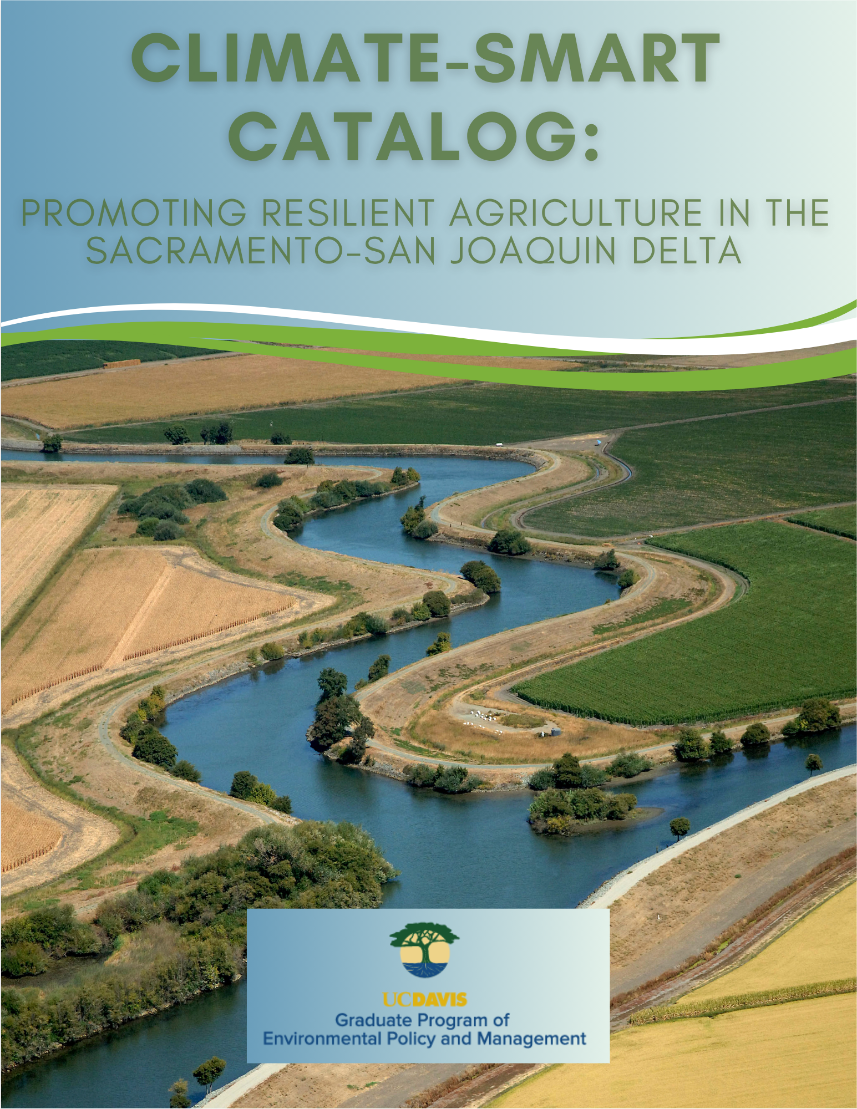
From these interviews, the students identified climate-smart agriculture strategies that are suitable for the Delta and effectively respond to the environmental challenges farmers face. These climate-smart strategies include:
- transitioning to rice cultivation,
- cover cropping,
- targeted grazing,
- windbreaks,
- precision agriculture,
- whole orchard recycling,
- planting resilient crop types, and
- improving water use efficiency.
The students also conducted research on alternative funding and revenue streams for farmers to help them with transitioning land uses and farming practices, including selling carbon offsets on the carbon market, leveraging incentives for habitat restoration, applying for third-party certifications, and setting up agricultural conservation easements or other protections to limit the conversion of farmland. The EPM team compiled these strategies into a Climate-Smart Catalog curated for Delta farmers, which summarizes each strategy and its benefits, potential barriers to implementation, case studies from other farmers, and, as available, funding sources to help with planning and implementation.
Farmers in the Delta provide critical services to Californians that go beyond just growing the food we eat - they maintain hundreds of miles of levees, protect and steward our open spaces, and help the state meet environmental and conservation goals. Our hope is that this catalog can be a resource for Delta farmers who need it most, such as smaller and disadvantaged farming operations, to connect to new ideas and resources for improving productivity and crop resilience far into the future. To access the Catalog, visit: https://ucdavis.app.box.com/s/in2qkh0a7edyswopkbbm6718jscrlu0i.
Thank you to the EPM team, Ainslee Shuemake, Daniel Harper, Joel Chima, and Paul Ronevich, for your dedication to and hard work on this project, and to all the interviewees who donated their time to support this effort. And thank you to the UC Davis EPM program for providing the Council the opportunity to participate in this year’s Environmental Policy Clinic. This project would not have been possible without each of you!
About the Author

Annika Ragsdale
Annika Ragsdale (she/her) is a senior environmental scientist in the Delta Stewardship Council’s Climate Change and Environmental Justice unit. In this role, she supports the Council’s Delta Adapts and Science for Communities initiatives and advances the recommendations of the Tribal and Environmental Justice Issue Paper. She is passionate about collaboratively addressing the Delta’s complex climate and environmental challenges and their impact on Delta communities. Annika holds a Bachelor of Science in Environmental Science from Cal Poly Humboldt and a Master of Science in Environmental Policy and Management from UC Davis. Prior to joining the Council, she worked in climate and sustainability consulting, helping public sector clients understand and address climate risks.
1 Delta Stewardship Council. (2025). Delta Adapts Adaptation Plan ↩
2 Sacramento-San Joaquin Delta Conservancy. (2024). Report on the Delta Drought Response Pilot Program for Water Year 2023. https://deltaconservancy.ca.gov/ ↩

